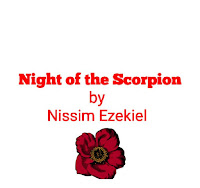The Leech Gatherer|Summary|Analysis
Introduction
 |
| The Leech Gatherer|Summary|Analysis |
Summary
The poet describes his meeting with an old man in this poem. The old man was a Leech gatherer by his profession. The poet says that the cool wind was blowing that night. It was raining heavily the whole night but the morning was very clear and pleasant.The raindrops were lying on the grass. They were shinning on the blades of grass. The sky was also looking very bright and clear.The sun was shining brightly. The birds were singing with their sweet voices and the whole atmosphere was very delighted and charming.
Hares are was running here and there happily. The poet further says that that morning he was wandering upon the mars enjoying the charming atmosphere. The poet was very happy to remember his old days.
The poet was hearing the sweet voice of skylark in the sky and he was seeing hares playing happily but suddenly he thought that such happy moments would not last for
long. He may become lonely and poor in the future. That's why he became very pessimistic or painful about it.
The poet further says that he has passed his whole life enjoying. The poet thinks about the tragic fate of Chatterton and Burns. They both were genius and had passed
their life in happiness but their old days were very painful. Therefore they took their lives.
According to the poet at the beginning of the poetical career, the poet always is happy but in the old age, they are sad and depressed.
The poet also very sad that time therefore he went to a lonely place to get rid of his depressive thoughts but suddenly he saw an old man there. He was looking very week as he was suffering from some chronic disease.
He was bending upon a wooden stick. The old man told the poet that he had gone to the pool to gatherer leeches. It was his profession. It was boring work but this time
he could not find any leech there.
The poet could not hear his voice clearly as he was standing far from him. When the poet saw the old man he forgot the pain of other poets.
The poet asked him about his living. The old man told him that he travelled far and wide to catch leeches.
He also told the poet that leeches had become now very less
because they were slowly dying. but he had to gather them wheresoever he could find them for his living.
The old man was very happy and behaving nicely.
After seeing him the poet feels ashamed to see such a stable mind of a week man. The poet prayed to God to help him and him decided to remember this old man whenever he would pass through this moor.



















